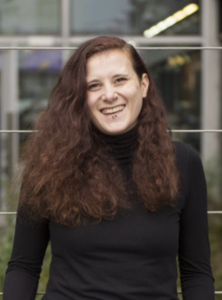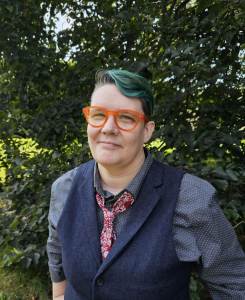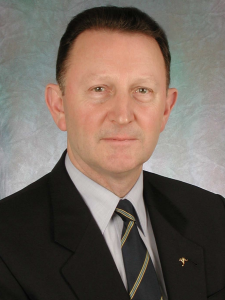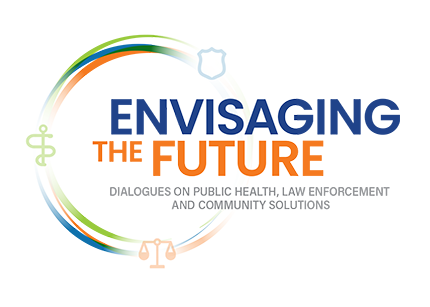List of nominees for Ordinary Member:
- Larissa Engelmann
- Megan M. Parry
- Richard Southby
Bios and statements of all nominees:
- Larissa Engelmann

I have been involved with GLEPHA since 2019. I presented as part of the LEPH 2019 PhD Workshop, which introduced me to the GLEPHA ethos and helped me connect with others who share my passion for public health responses to crime and social harms. I also presented at the main conference exploring the role of police education in supporting multi-agency responses, which is why I joined the GLEPHA Education SIG. Since then, I presented at the LEPH 2023 conference in Sweden where I supported the PhD and early career researcher event and I continue to work closely with GLEPHA members and those working in the field of law enforcement and public health. I am also a research fellow within the Vulnerability and Policing Futures Research Centre who is co-hosting the 2026 LEPH Conference in Leeds.
I have been a steering group member of the European Society of Criminology Policing Working Group since 2019 developing an international policing research liaison network. I worked as a team leader in Zambia on a sexual reproductive health project to support both local and international volunteers. I was the Research degrees representative at Edinburgh Napier University and the PhD Coordinator for the
Scottish Institute for Policing Research. I am currently a Trustee for a local charity which supports prisoners and young offenders to find purpose and belonging whilst developing their skillsets. I have extensive skills in effectively navigating teams, event and project management, supporting the development of early career support networks and working collaboratively across countries and disciplines for research and impact.
I support all GLEPHA’s stated aims and would focus on:
– Elevating and improving the sharing of knowledge between countries to learn from different public health approaches in different contexts.
– Build bridges between law enforcement, public health and academic institutions to develop a learning sector that can create a LEPH body of knowledge that supports the GLEPHA aims.
– Support the early career researcher community (including pracademics) to ensure there is a new generation of LEPH researchers and practitioners who can learn from established GLEPH members and vice versa.
2. Megan M. Parry

I am an associate professor in the department of Criminology and Criminal Justice at the University of Rhode Island (USA). My research agenda focuses on the perceptions and experiences of the autistic community in relation to policing. I have been a member of GLEPHA since 2019 and am a member of the Neurodisability SiG. I attended the 2019 conference in Edinburgh, Scotland, and presented at the 2020 conference in Philadelphia (virtual) and the 2023 conference in Umea, Sweden.
In academia, I have served on departmental, college, and university level committees, including several that are directly related to public safety. Previously, I served on the board of directors for Phoenix Pride, an organization serving the LGBTQ+ community in Arizona. At that time, the board oversaw both a brick-and-mortar center as well as events serving an estimated 15,000 attendees. Through these roles, I’ve developed strong skills in strategic planning, and governance, as well as a focus on collaboration,
inclusivity, and community.
I think the priorities for GLEPHA moving forward should include:
Expanding knowledge exchange
– I would like to participate in expanding the number of online conferences, research exchanges, and other events currently offered. While virtual events cannot take the place of those held in-person, online conferences, networking events, and the like provide a critical avenue of accessibility and reach, allowing members with financial or physical barriers to connect, share, and learn.
Increasing membership and reducing attrition
– I would like to help support and further strategies that foster not just new memberships globally but encourage life-long memberships and involvement. While memberships provide financial stability and longevity, increasing and retaining membership is also a vital component to knowledge growth and
policy change.
Supporting student and early career scholars
– While there are already some programs in place to support students, such as student awards and events at the conferences, I would like to see them be a greater focus. Strong mentorship programs can help encourage the next generation of leaders in the field. Further, providing year-round opportunities can help establish a network of collaborators and supporters, which can be vital for both academics and practitioners.
3. Richard Southby

Dr. Richard Southby is Dean and Distinguished Professor of Global Health Emeritus, Milken Institute School of Public Health, The George Washington University, Washington, DC.
He is also Adjunct Professor of Military and Emergency Medicine, Uniformed Services University of the Health Sciences, Bethesda, MD, where he directs the Interagency Institute for Federal Health Leaders (US Army; US Navy; US Air Force; US Public Health Service; and Veterans Affairs).
Dr. Southby is Honorary Professor, Faculty of Medicine, Dentistry and Health Sciences, The University of Melbourne; Faculty of Medicine, Nursing and Health Sciences, Monash University; and Faculty of Medicine, The University of Sydney, Australia.
Since 1989 he has been a member of the Metropolitan Police Department Reserve Corps, Washington, DC. He has served as Reserve Commander in several Districts, Deputy Commanding Officer and Commanding Officer. He is currently Senior Educational Adviser to the Department.
In addition to being Dean of the School of Public Health, he was the Founding Director of the Police Science Program at The George Washington University. Dr. Southby has been affiliated with police education and training programs in Australia, Canada, Hungary, Malaysia, New Zealand, Thailand and the United Kingdom.
He is an Editor and Contributor to ‘Law Enforcement and Public Health: Partners for Community Safety and Wellbeing’, Springer, 2022.
As a member of GLEPHA he has attended and presented at meetings in Toronto, Canada and Edinburgh, Scotland. He is a member of the Planning Committee for the GLEPHA Conference in 2025.
He is continuing to work with the Metropolitan Police Academy in teaching police recruits, and other police personnel, concerning the need for more effective LEPH collaboration. He is also involved in developing approaches to get better understanding about LEPH and greater collaboration with academic public health colleagues.





